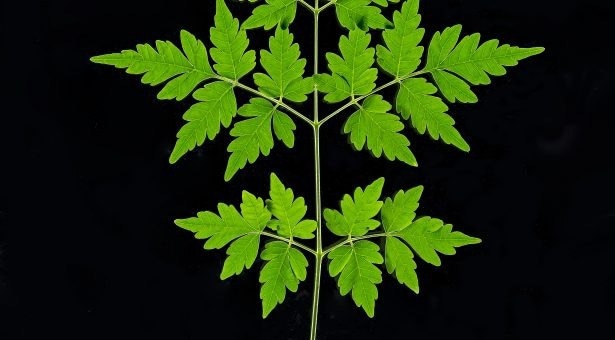Groundbreaking research has revealed the secret of how plants tend to make limonoids, a family of useful organic chemicals which incorporate bee-friendly insecticides and have the potential as anti-cancer drugs.

Image Credit: John Innes Center.
The research group, a partnership between the John Innes Centre and Stanford University, made use of pioneering techniques to disclose the biosynthetic pathway of such beneficial molecules, which are made by some plant families, such as citrus and mahogany.
In the study that appears in Science, the John Innes Center research team utilized genomic tools to map the genome of Chinaberry (Melia azedarach), a mahogany species, and integrated this with molecular analysis to disclose the enzymes in the biosynthetic pathway.
By finding the enzymes required to make limonoids, we have opened the door to an alternate production source of these valuable chemicals.”
Dr Hannah Hodgson, Study Co-First Author and Postdoctoral Scientist, John Innes Center
So far limonoids, a kind of triterpene, could just be produced by extraction from plant material.
Their structures are too complicated to efficiently make by chemical synthesis. With the knowledge of the biosynthetic pathway, it is now possible to use a host organism to produce these compounds.”
Dr Hannah Hodgson, Study Co-First Author and Postdoctoral Scientist, John Innes Center
Equipped with the entire biosynthetic pathway, scientists could currently produce the chemicals in generally utilized host plants like Nicotiana benthamiana. This technique could produce bigger quantities of limonoids in a more durable method.
Raising the supply of limonoids could allow the highly extensive use of azadirachtin, the anti-insect limonoid obtained from the neem tree and utilized in commercial and conventional crop protection. Azadirachtin is known as an effective, bee-friendly, and fast-degrading option for crop safety but is not extensively utilized as a result of the limited supply.
Two comparatively simple limonoids, azadirone from Chinaberry and kihadalactone A from citrus were made by the research group, and believe that the techniques utilized can currently be employed as a template for making highly complex triterpenes.
Plants make a wide variety of specialized metabolites that can be useful to humans. We are only just starting to understand how plants make complex chemicals like limonoids. Prior to this project, their biosynthesis and the enzymes involved were completely unknown, now the door is open for future research to build on this knowledge, which could benefit people in many ways.”
Anne Osbourn, Study Co-Corresponding Author, Group Leader and Professor, John Innes Center
Another instance of a high-value limonoid that the team believes to produce is known as the anti-cancer drug candidate nimbolide. This work can allow simpler access to limonoids like nimbolide to enable additional study.
Alongside producing known products like nimbolide, the research group state that the stage must be set to comprehend new activities for limonoids that are yet to be analyzed.
The research group at the John Innes Centre was financially supported by Syngenta and BBSRC through an industrial partnership award.
Source:
Journal reference:
De La Pena, R., et al. (2023) Complex scaffold remodeling in plant triterpene biosynthesis. Science. doi.org/10.1126/science.adf1017.